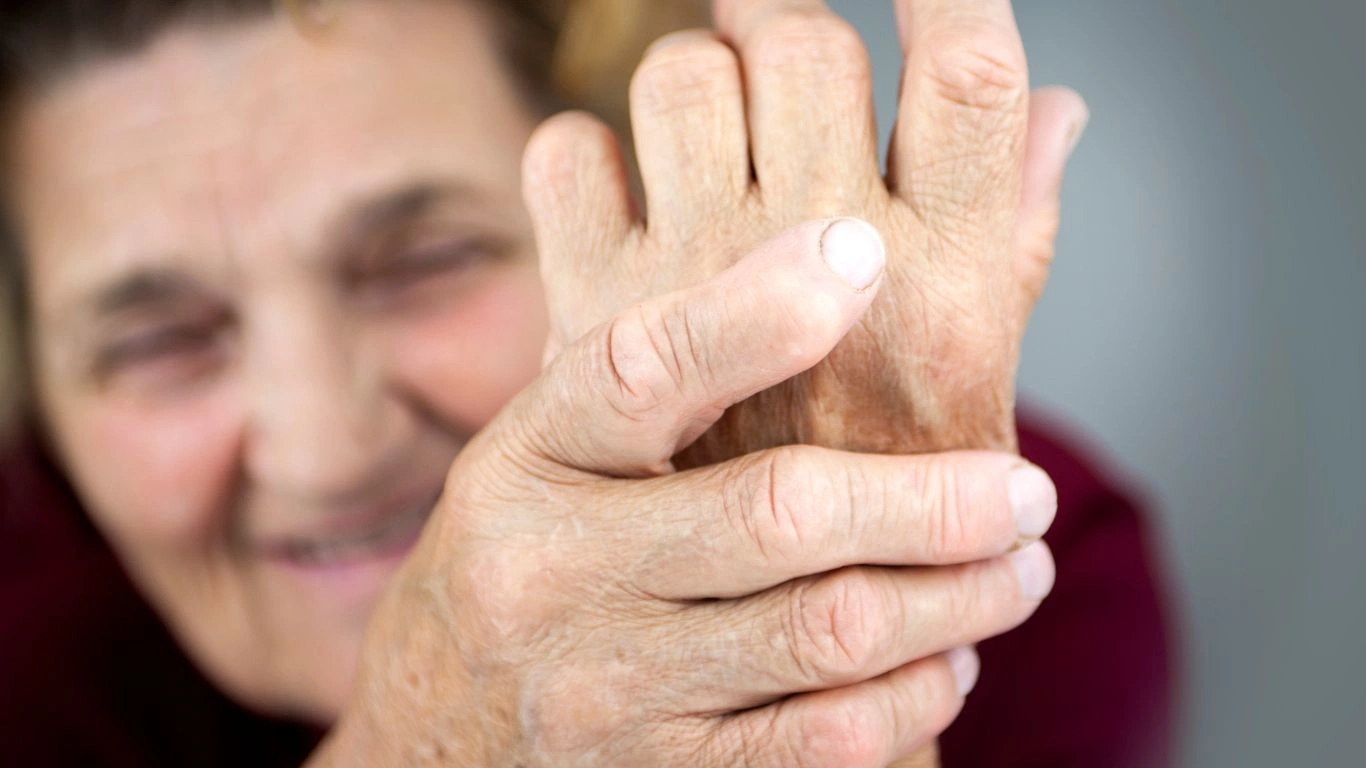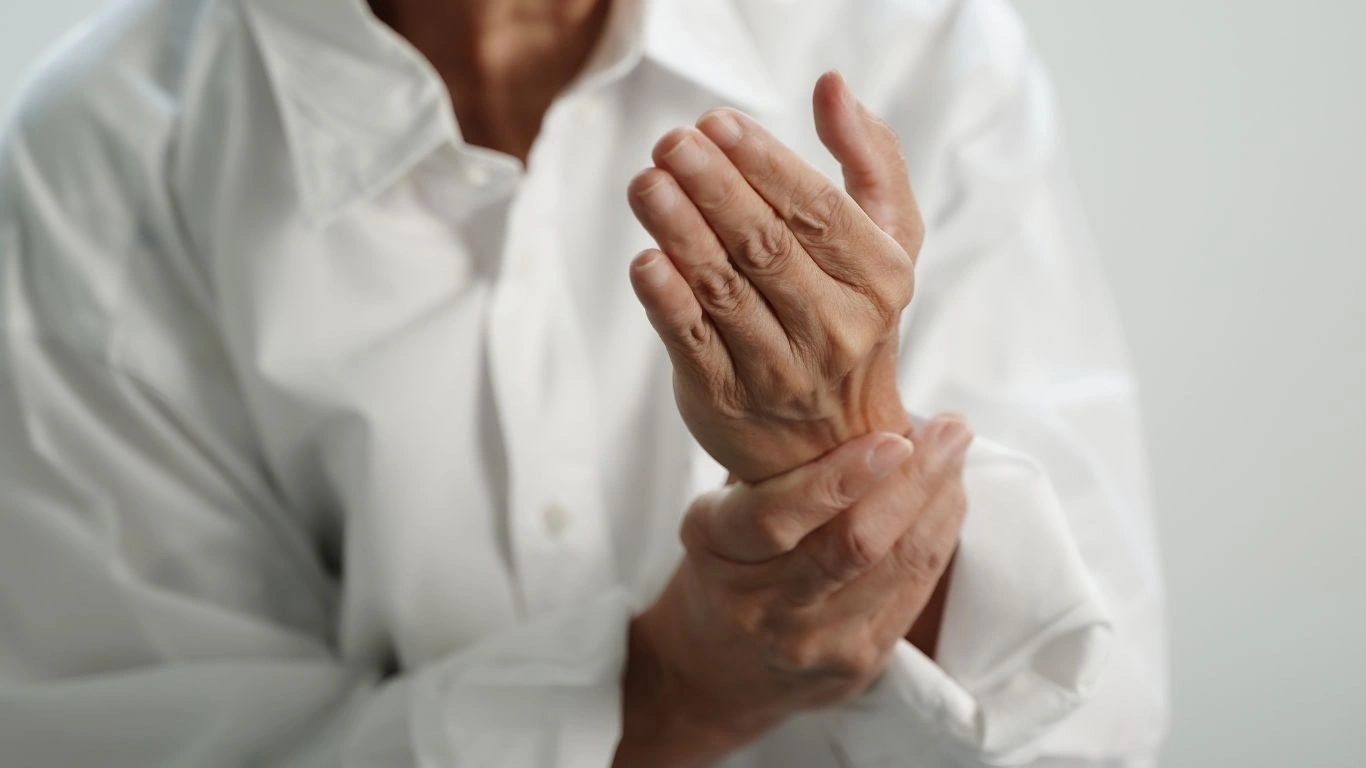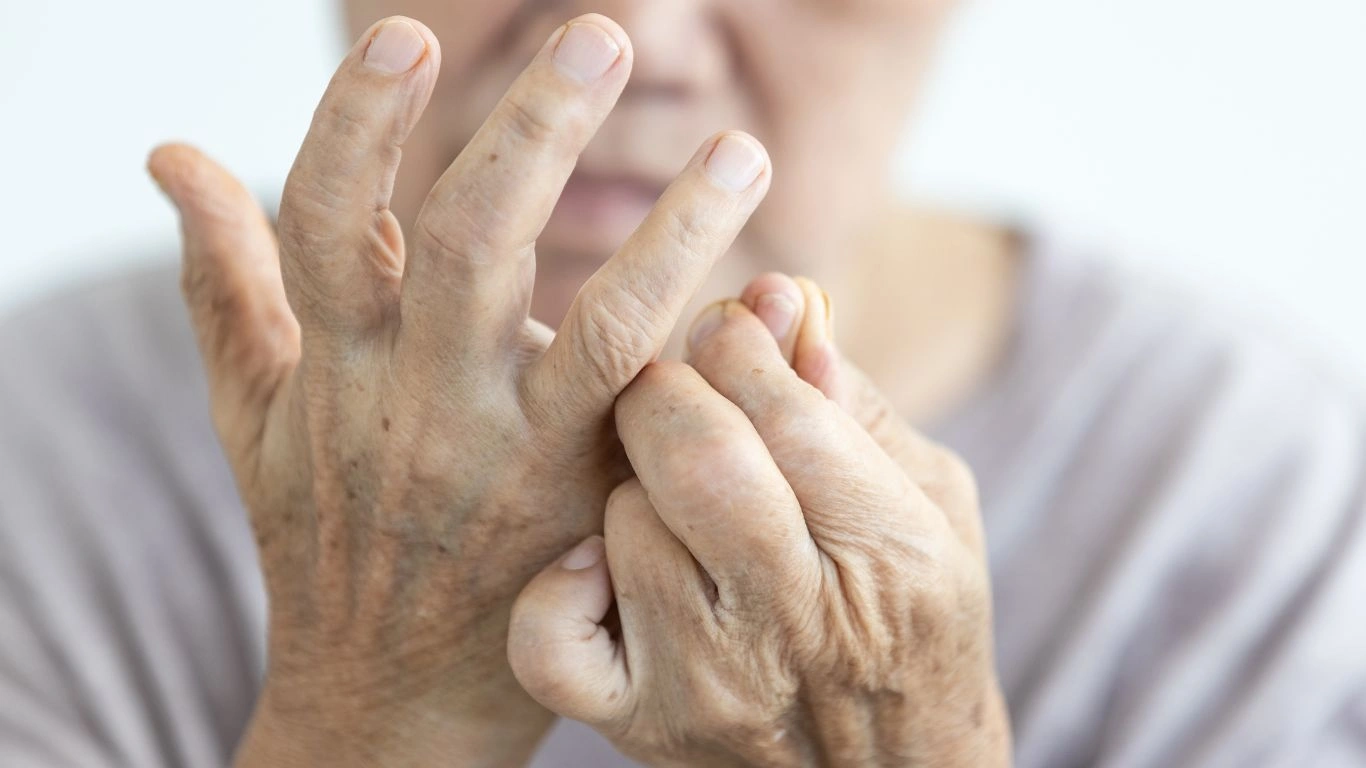Reduce Stiffness in Rheumatoid Arthritis Naturally: Effective Tips
Living with rheumatoid arthritis (RA) can feel like an uninvited guest who overstays their welcome. As a Rheumatology Nurse Practitioner, I’ve seen firsthand how it affects people—physically, mentally, and emotionally. One of the most common and frustrating symptoms of RA is stiffness, particularly in the morning or after periods of inactivity. And trust me, I’ve heard more than my fair share of patients wondering, “How can I reduce this stiffness naturally?” It’s a good question, and one that can make a world of difference in managing this chronic condition.
Understanding Rheumatoid Arthritis and Its Impact on Stiffness
Before diving into natural ways to reduce stiffness, let’s take a moment to understand what rheumatoid arthritis actually is. RA is an autoimmune condition where your immune system mistakenly attacks your body’s joints. Unlike osteoarthritis, which is a wear-and-tear issue, rheumatoid arthritis involves inflammation that can cause pain, swelling, and a reduction in joint function. This is why stiffness is one of the hallmark symptoms of the condition.
For those of you dealing with RA, you’ve probably noticed that the stiffness feels worse in the mornings or after you’ve been sitting or lying down for a while. It’s like your joints freeze up, and moving feels like trying to start a car that’s been sitting in the cold for hours. But, here’s the good news: there are natural ways to manage and reduce this stiffness.
The Role of Inflammation in Joint Stiffness
Let’s talk about inflammation for a second. Inflammation is a big player in rheumatoid arthritis, and it’s at the root of the stiffness you’re feeling. Your body’s immune system triggers inflammation in the joints as it tries to protect itself from what it perceives as a threat (even though, in this case, it’s just your own body). This constant inflammation can lead to lasting damage and increased stiffness.
So, the goal is to reduce that inflammation naturally. And here’s where the real work begins—by adopting certain lifestyle changes, incorporating specific foods, and trying different natural remedies, you can help calm the inflammation that’s causing all that stiffness.
Natural Ways to Reduce Stiffness from Rheumatoid Arthritis

1. Start Your Day with Gentle Movement
One of the best ways to reduce morning stiffness is to get moving right after waking up. Now, I know it’s not always easy, especially when you’re in pain, but trust me on this. Gentle movement helps get the blood flowing and lubricates the joints. You don’t need to jump into a full workout right away—simple stretches or a short walk can do wonders. Personally, I recommend starting with some yoga or Tai Chi. Both are known for their gentle, low-impact movements that help improve flexibility and reduce stiffness.
2. Warm Up Your Joints
Have you ever noticed how a warm shower or a hot pack can ease stiffness? Heat can be a game-changer for those struggling with joint pain. Applying a warm compress or soaking in a warm bath for 15-20 minutes can relax your muscles and ease the stiffness in your joints. It’s like giving your body a little comfort hug, and let’s face it, we could all use a bit more of that!
3. Stay Active—But Be Mindful
Exercise is incredibly important for RA management, but it’s key to find the right balance. Too much activity can worsen symptoms, but too little can leave you stiff and weak. The trick is to stay active without overdoing it. Try low-impact exercises like swimming, cycling, or walking. These help keep your joints moving without putting too much stress on them. And let’s not forget the power of a good old stretch! Stretching regularly keeps your muscles limber, preventing them from becoming too tight and causing more discomfort.
Food for Your Joints: Anti-Inflammatory Diet

4. Incorporate Anti-Inflammatory Foods
What you eat can play a huge role in managing your RA symptoms. A diet rich in anti-inflammatory foods can help reduce the inflammation that’s contributing to your stiffness. Think of foods like salmon, walnuts, olive oil, and leafy greens. These foods are packed with omega-3 fatty acids, antioxidants, and other compounds that can help fight inflammation naturally. In fact, many of my patients have reported feeling less stiff after they made small adjustments to their diet.
And, hey, I’m not suggesting you need to overhaul your whole diet overnight—start small! Try adding a handful of walnuts to your morning yogurt or switching your cooking oil to olive oil. These small changes can add up to big benefits over time.
5. The Power of Turmeric and Ginger
Let’s not forget about the natural remedies that have been used for centuries. Turmeric and ginger are both powerhouse anti-inflammatory ingredients that can help alleviate stiffness. Curcumin, the active compound in turmeric, is particularly known for its anti-inflammatory properties. You can easily add turmeric to your diet by sprinkling it in soups, smoothies, or even your morning tea. Ginger, on the other hand, can be consumed fresh, in tea, or in capsules. Both are known for their ability to help reduce inflammation and stiffness in the joints.
Mind-Body Connection: Stress Reduction and RA

6. Manage Your Stress
Believe it or not, stress can make your RA symptoms worse. I’ve seen patients who are already dealing with the physical pain of RA only to have stress compound their stiffness and discomfort. Stress triggers inflammation, and when you’re constantly stressed, you’re making it harder for your body to heal and function optimally.
So, what can you do? Take a few moments every day to practice relaxation techniques like deep breathing, meditation, or even mindfulness. Taking a short walk outdoors or engaging in a hobby that brings you joy can work wonders for your stress levels and, ultimately, your RA symptoms. You’d be surprised how much a calm mind can contribute to feeling less stiff and more mobile.
Natural Supplements for Rheumatoid Arthritis Relief

7. Omega-3 Fatty Acids
As we mentioned earlier, omega-3 fatty acids are known for their anti-inflammatory properties, and for good reason. These essential fats can help reduce joint pain and stiffness in people with rheumatoid arthritis. Omega-3s are found in foods like fatty fish (salmon, mackerel), flaxseeds, and walnuts, but you can also take supplements like fish oil if you’re not getting enough through your diet. I’ve had patients who swear by fish oil, claiming they feel significantly less stiff after incorporating it into their daily routine.
What’s interesting is that omega-3 fatty acids are not only beneficial for RA symptoms, but they also play a role in improving heart health, which is crucial since people with rheumatoid arthritis tend to be at higher risk for cardiovascular disease. So, you’re essentially killing two birds with one stone!
8. Glucosamine and Chondroitin
Another supplement that some RA sufferers find helpful is glucosamine and chondroitin. These compounds are naturally found in the body and are known for supporting joint health. Studies suggest that glucosamine may help reduce pain and stiffness in the joints by promoting cartilage repair. Although research is mixed, I’ve had patients who’ve seen improvement in their joint function and mobility after taking glucosamine and chondroitin. Again, it’s one of those things that can vary from person to person, but it’s worth considering as part of a comprehensive approach to managing stiffness.
9. Vitamin D and Calcium
If you’ve been diagnosed with rheumatoid arthritis, maintaining strong bones is a must. RA, combined with some of the medications used to treat it, can make you more prone to bone loss. That’s where vitamin D and calcium come into play. Vitamin D helps your body absorb calcium, which is essential for bone strength. I’ve often recommended that patients with RA get their vitamin D levels checked regularly, especially because many people with autoimmune conditions are prone to deficiencies.
Getting enough vitamin D through sunlight exposure or foods like fortified milk, eggs, and fatty fish is a natural way to support bone health. If you’re low in vitamin D, a supplement can help boost your levels and, ultimately, keep your bones and joints in better shape. Don’t forget about calcium, which is also found in dairy products, leafy greens, and fortified alternatives like almond milk. A well-balanced diet, along with these key nutrients, can play a significant role in managing stiffness over time.
Creating a Daily Routine for Managing Stiffness

10. Morning Routine
Let’s talk about creating a morning routine that sets the tone for the day. When I work with my patients, I always emphasize the importance of starting the day with intention. A good morning routine can help reduce stiffness and boost mobility right off the bat. Start with a few gentle stretches to loosen up those tight joints. I recommend incorporating a few yoga poses that focus on stretching the spine, hips, and wrists. After stretching, try doing a light movement exercise like a short walk around the block or some gentle chair exercises. Even 10-15 minutes can make a huge difference in how your body feels throughout the day.
And remember, don’t rush it! A slow and steady approach is key. There’s no need to push yourself too hard in the morning when your joints are feeling extra stiff. Start small, and over time, your flexibility and mobility will improve.
11. Evening Routine
Now, let’s move on to your evening routine. Before you wind down for bed, it’s important to focus on relaxation. Stretching before bed can also help reduce stiffness and improve your flexibility for the next morning. I’ve always recommended that my patients focus on deep breathing exercises, gentle stretching, or even a warm bath in the evening to help relax their muscles. It’s like telling your body, “Hey, it’s time to relax and rest up for tomorrow.” If you’ve been having trouble with joint stiffness in the morning, a good evening routine can help ease those tensions and improve your sleep quality, which is another key factor in reducing inflammation.
12. Stay Hydrated
One aspect of stiffness that’s often overlooked is hydration. Staying hydrated is so important for joint health, as the synovial fluid in our joints relies on water to lubricate and cushion the joints. Dehydration can make your joints feel even more stiff and achy. So, one simple way to reduce stiffness naturally is by drinking enough water throughout the day. Aim for at least 8 cups of water daily, and more if you’re active or live in a hot climate.
If plain water isn’t your thing, herbal teas or water with a splash of lemon are great alternatives. Just make sure you’re staying hydrated because your joints—and overall health—will thank you.
The Importance of Consistency in Managing Stiffness

13. Stick to the Plan
Finally, I can’t stress enough how important consistency is when it comes to managing rheumatoid arthritis and reducing stiffness. Many of the natural remedies I’ve mentioned, from movement and stretches to diet and supplements, require consistency to see significant results. I always tell my patients that managing RA isn’t a one-time fix, it’s about developing a long-term approach to improve your quality of life.
When you integrate small, natural changes into your daily routine, whether that’s through diet, exercise, or supplements, over time you’ll likely notice a decrease in stiffness and an improvement in joint function. It won’t happen overnight, but the more consistently you stick with these habits, the better the results will be. And I can tell you from experience, your joints and your overall health will thank you in the long run.
Exploring Mindfulness and Other Holistic Approaches for RA Stiffness Relief

14. The Power of Mindfulness and Meditation
When it comes to managing rheumatoid arthritis (RA) and reducing stiffness, it’s not all about what you eat or how much you move. Believe it or not, your mental well-being can have a massive impact on how your body feels. That’s where mindfulness and meditation come in. I know, I know—some of you might be skeptical, but hear me out. Stress is a huge contributor to inflammation, and when you’re stressed, your body goes into overdrive. Your immune system kicks in, causing even more swelling and stiffness in your joints.
Mindfulness is a simple practice that helps you stay present and grounded, reducing stress and its impact on your body. Meditation, on the other hand, goes even further by calming the mind and promoting relaxation. I’ve had many patients report a noticeable decrease in stiffness after incorporating mindfulness practices into their daily routines. It’s not a magic cure, but it’s a natural way to complement other RA treatments and improve your overall quality of life.
Starting with just 10 minutes a day of deep breathing, body scans, or guided meditation can help you feel more in control of both your physical and mental health. And it doesn’t have to be difficult—there are plenty of apps and online resources to guide you. Plus, making it a daily habit can help you cope better with the stress that RA often brings, leading to less joint pain and stiffness.
15. Acupuncture and Massage Therapy
If you’ve ever tried acupuncture or massage therapy for your RA symptoms, you might already know how effective these therapies can be. Acupuncture, an ancient practice rooted in Traditional Chinese Medicine, involves inserting fine needles into specific points on the body. Many of my patients with rheumatoid arthritis have reported significant reductions in pain and stiffness after acupuncture sessions. The needles are believed to stimulate the body’s natural healing process, reducing inflammation and improving circulation in the affected areas.
Similarly, massage therapy can help relax tight muscles, improve circulation, and reduce overall discomfort. Whether it’s a deep tissue massage or a gentler Swedish massage, the goal is to release the tension that builds up in the muscles surrounding the joints. I recommend finding a certified massage therapist who has experience working with individuals who have chronic conditions like RA. While these treatments won’t cure RA, they can certainly provide temporary relief from stiffness and pain.
Staying Informed: The Role of Research in Managing Rheumatoid Arthritis

16. Keep an Eye on the Latest Research
As someone who works in rheumatology, I’m constantly keeping up with the latest research on rheumatoid arthritis. It’s a rapidly evolving field, and new treatments, medications, and natural remedies are always being tested. I highly encourage you to stay informed about the newest advancements in RA care, especially if you’re looking for ways to manage your stiffness more effectively. The more you know about what’s out there, the better equipped you’ll be to make informed decisions about your treatment plan.
Websites like the National Institutes of Health (NIH) and Health.com often feature articles and updates on RA research, clinical trials, and new therapeutic approaches. Staying informed can help you discover new strategies to improve your joint health and potentially reduce stiffness more effectively. Research is one of the most powerful tools we have in our ongoing fight against rheumatoid arthritis, and it’s worth keeping an eye on the latest developments.
17. Consult Your Rheumatologist for Personalized Care
While this article offers many natural and holistic methods to reduce stiffness, it’s important to remember that managing RA is highly individualized. What works for one person may not work for another. This is why it’s so important to work closely with your rheumatologist or healthcare provider to create a personalized treatment plan that addresses your specific symptoms and needs. Your doctor can provide tailored recommendations based on your medical history, current treatment plan, and lifestyle.
Rheumatologists are experts in autoimmune conditions like rheumatoid arthritis, and they can guide you through the process of finding the right combination of therapies—whether they’re natural remedies, medications, or lifestyle changes—that work best for you. Remember, your healthcare team is there to help you navigate the ups and downs of living with RA and to ensure you’re getting the most effective care possible.
Disclaimer
While this article provides helpful tips and strategies for reducing rheumatoid arthritis stiffness naturally, it’s important to consult with your healthcare provider before making any significant changes to your treatment plan. Every individual’s experience with RA is unique, and what works for one person may not be suitable for another. Additionally, natural remedies and supplements should be used as complementary approaches and not as replacements for prescribed medications or therapies. Always seek professional advice before starting any new treatment regimen.

Tarra Nugroho is a dedicated Nurse Practitioner with a strong foundation in family and preventive care. She brings both compassion and clinical expertise to her practice, focusing on patient-centered care and health education. As a contributor to Healthusias.com, Tarra translates medical knowledge into clear, empowering articles on topics like women’s health, chronic disease management, and lifestyle medicine. Her mission is simple: help people feel seen, heard, and informed—both in the clinic and through the content she creates. When she’s not caring for patients, Tarra enjoys weekend hikes, plant-based cooking, and curling up with a good health podcast.







